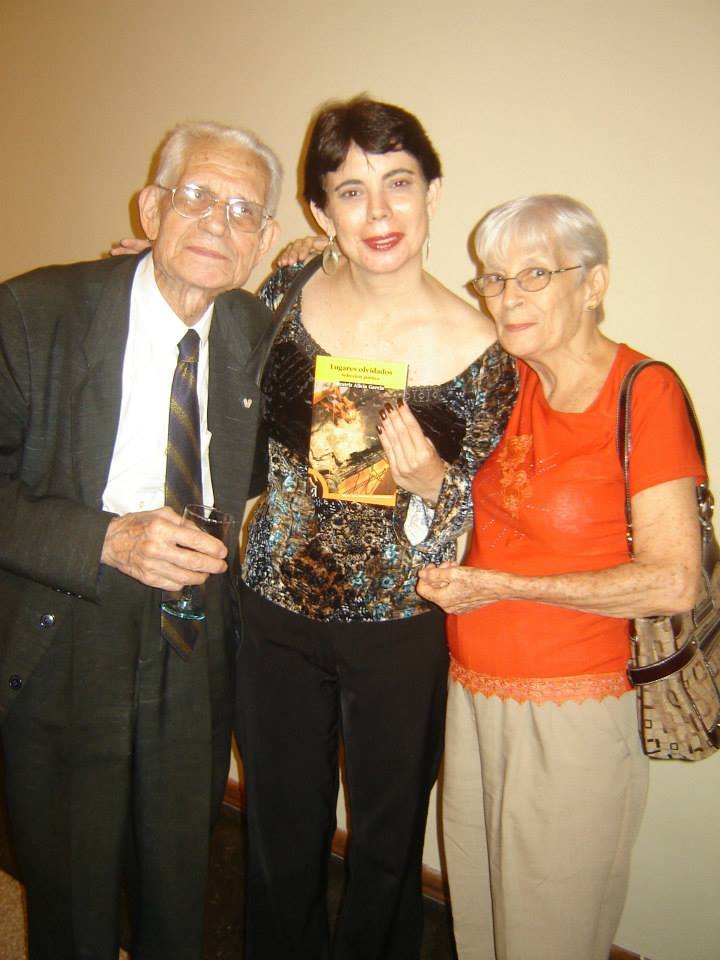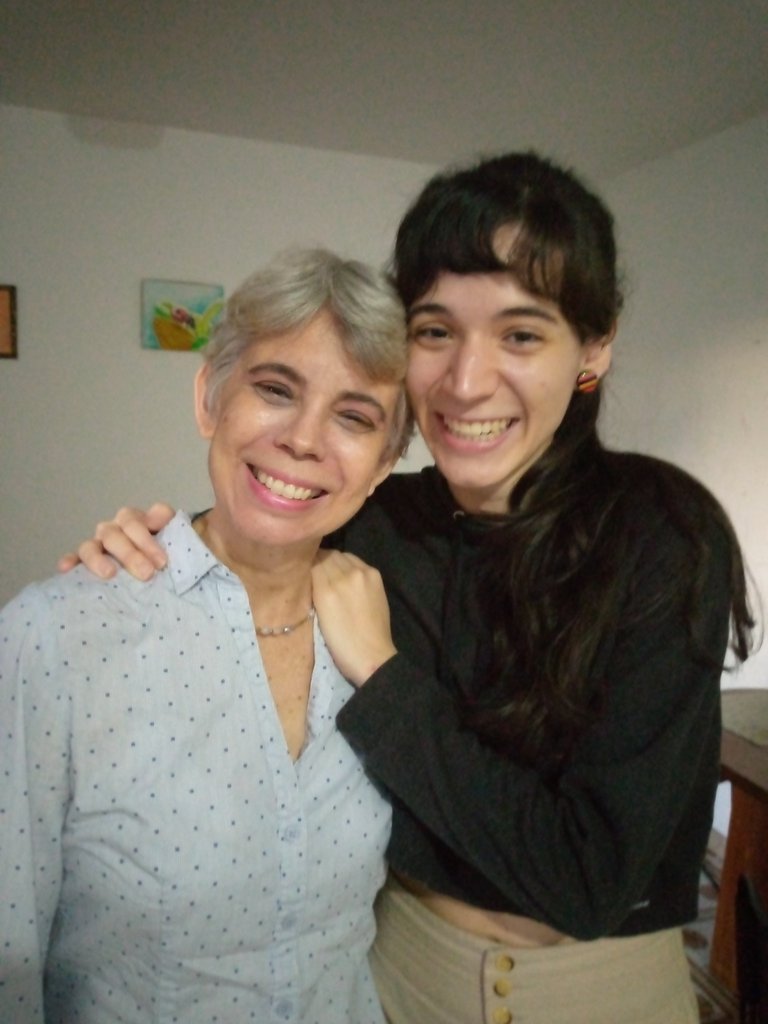
Banner diseñado por mí en canva.com Foto plantilla de @eirene-pianetas-team Banner designed by me on canva.com photo by @eirene-pianetas-team
A algunas personas les resulta fácil decir “te quiero” o decir “te amo”, probablemente porque crecieron en un contexto familiar y cultural en los que eran habituales esas expresiones de cariño. Pero a quienes crecimos en un contexto familiar en el que no se decía “te quiero” o “te amo” no nos resulta tan fácil decir ese tipo de frases. Yo particularmente, por ejemplo, a pesar de que me gusta dar y recibir abrazos, besos, expresiones de cariño, por lo general, son muy pocas las personas a las que les digo “te quiero” o “te amo”.
Sin duda las expresiones de cariño son beneficiosas para quienes las reciben. Refuerzan en el contexto familiar el sentido de pertenencia, de afectividad. Fortalecen la autoestima. Pero en algunas culturas y familias el vínculo familiar se establece a través del cuidado y formas de compartir no afectivas. Fue el caso de mi contexto familiar. Decir “te quiero” o dar muestras de cariño no era una costumbre cotidiana.
En el caso de mi padre, que se educó en el colegio alemán de Caracas y su madre, mi abuela, era una persona de carácter fuerte, poco afectuosa, creo que esto influyó mucho en su carácter, en su dificultad para expresar sus sentimientos. Mi mamá, al igual que la abuela Adelina, no era una persona afectuosa.
Yo, sin embargo, que sentía la necesidad de dar y recibir afecto, era cariñosa con papá. Cuando era niña él me decía “Melaíto”. Siempre tuvimos un vínculo especial, una cercanía que él no tuvo con mis hermanas. En casa había álbumes de fotos y yo le preguntaba por los abuelos, sus papás, Luis Martín y Adelina, a quienes no conocí, por sus tíos, que estaban en las fotos. O por sus tiempos de juventud en Ginebra o luego en París y otras ciudades de Francia. Pero había poco contacto físico entre nosotros. Él no era capaz de dar afecto, porque no lo había recibido.
Los actos de amor que no se expresan con palabras

La manera en que papá expresaba su afecto era su dedicación a su familia, cuando estaba en casa. A mamá no le gustaba cocinar, los fines de semana, cuando papá estaba en casa, él cocinaba. En las noches, a veces también preparaba la cena. Él salía del trabajo directamente a la casa. Los sábados hacía el mercado, compraba las cosas que se necesitaban en casa, no lo hacía mamá; y los domingos, luego de ir a misa, nos llevaba a pasear. Tomaba vacaciones cuando las hijas estábamos de vacaciones para llevarnos de viaje o a visitar a los familiares que vivían en otras ciudades. Papá fue un hombre enteramente dedicado a su familia.

La compañía en eventos importantes es una expresión de amor, foto de mi álbum personal
Mi sobrina menor, Adriana, hija de mi hermana Margarita, es una persona muy afectuosa, y con cierta frecuencia me dice, y a sus otras tías, “te quiero mucho”, y nos abraza. Su hermana Daniela, eventualmente también lo hacía cuando vivía en Venezuela, actualmente vive en Chile. Quizá ellas están rompiendo esa dificultad para expresar sus sentimientos que tuvieron sus abuelos, su madre y sus tías. Mi sobrina mayor, Maussa, que se crió en nuestra casa, sin embargo, no es una persona afectuosa. La afectó crecer en un contexto muy disciplinado donde no había expresión de afecto.

Con mi sobrina Adriana, foto de mi álbum personal
Las palabras que no se convalidan con actos

A través de los años me he enamorado de personas que me dijeron “te quiero” o “te amo”, o “eres la mujer de mi vida”, pero luego su manera de actuar no fue consecuente con esas palabras. Me dejaron en esta feliz soledad que hoy disfruto. Entonces, creo que es importante la coherencia. Decir palabras dulces y luego hacer sufrir a la persona que se las dices, tampoco está bien. Lo ideal es que haya un equilibrio.
Yo hubiese querido unos padres que pudieran expresar sus sentimientos, no recibir muestras de afecto te marca profundamente, te crea graves problemas para conectar con otros. Pero también te marca tener padres que te digan “te quiero” y no te cuiden, te maltraten o te abandonen. Hoy en día disfruto mucho dando y recibiendo muestras de afecto, te hace bien sentirte querido. Pero creo honestamente que la falta de expresión de afecto en mi hogar nos marcó negativamente a mí y a mis tres hermanas. Si tienes la oportunidad dile “te quiero” a tus hijos, abrázalos. Cuando sean adultos sentirán dentro de ellos ese afecto y les será más fácil darlo.
Gracias a
@lilianajimenez por proponer esta iniciativa vinculada a la expresión de afecto en la familia. Creo que es un tema importante para reflexionar. Estimado lector o lectora, espero que estas líneas te hayan servido para reflexionar o que quizá te sirvan como espejo. Porque a veces nos hace bien saber que otras personas han pasado por experiencias similares a las nuestras.

Initiative The well-being of an I love you in the family/ THE WORDS AND THE ACTS
Some people find it easy to say "I love you" or "I love you", probably because they grew up in a family and cultural context where such expressions of affection were common. But those of us who grew up in a family context in which "I love you" or "I love you" were not said, do not find it so easy to say such phrases. I particularly, for example, although I like to give and receive hugs, kisses, expressions of affection, in general, there are very few people to whom I say "I love you".
Undoubtedly, expressions of affection are beneficial for those who receive them. They reinforce the sense of belonging and affection in the family context. They strengthen self-esteem. But in some cultures and families the family bond is established through care and non-affective forms of sharing. This was the case in my family context. Saying "I love you" or giving tokens of affection was not a daily custom.
In the case of my father, who was educated in the German school in Caracas and his mother, my grandmother, was a person of strong character, not very affectionate, I think this had a great influence in his character, in his difficulty to express his feelings. My mother, like my grandmother Adelina, was not an affectionate person.
I, however, who felt the need to give and receive affection, was affectionate with dad. When I was a child he used to call me "Melaíto". We always had a special bond, a closeness that he did not have with my sisters. At home there were photo albums and I would ask him about his grandparents, his parents, Luis Martin and Adelina, whom I never met, about his uncles and aunts, who were in the photos. Or about his youthful days in Geneva or later in Paris and other cities in France. But there was little physical contact between us. He was not capable of giving affection, because he had not received it.
Acts of love that are not expressed in words

Dad's way of expressing his affection was his dedication to his family, when he was at home. Mom didn't like to cook; on weekends, when Dad was home, he would cook. In the evenings, he would sometimes cook dinner, too. He would go straight home from work. On Saturdays he would go to the market, he would buy the things that were needed at home, not mom; and on Sundays, after going to mass, he would take us for a walk. He would take vacations when we daughters were on vacation to take us on trips or to visit relatives who lived in other cities. Dad was a man entirely dedicated to his family.

The company at important events is an expression of love, photo from my personal album.
My youngest niece, Adriana, daughter of my sister Margarita, is a very affectionate person, and she often says to me and her other aunts, "I love you very much", and hugs us. Her sister Daniela, who eventually did the same when she lived in Venezuela, now lives in Chile. Perhaps they are breaking through the difficulty in expressing their feelings that their grandparents, mother and aunts had. My oldest niece, Maussa, who grew up in our house, however, is not an affectionate person. She was affected by growing up in a very disciplined context where there was no expression of affection.

With my niece Adriana, photo from my personal album
Words that are not validated by actions

Over the years I have fallen in love with people who told me "I love you", or "you are the woman of my life", but then their way of acting was not consistent with those words. They left me in this happy solitude that I enjoy today. So, I think consistency is important. Saying sweet words and then making the person you say them to suffer is not right either. Ideally, there should be a balance.
I would have wanted parents who could express their feelings, not receiving signs of affection marks you deeply, it creates serious problems for you to connect with others. But it also marks you to have parents who say "I love you" and don't take care of you, mistreat you or abandon you. I really enjoy giving and receiving affection, it does you good to feel loved. But I honestly believe that the lack of expression of affection in my home negatively marked me and my three sisters. If you have the opportunity say "I love you" to your children, hug them. When they are adults they will feel that affection inside them and it will be easier for them to give it.
Thanks to
@lilianajimenez for proposing this initiative linked to the expression of affection in the family. I think it is an important topic to reflect on. Dear reader, I hope these lines have helped you to reflect or perhaps serve as a mirror. Because sometimes it is good for us to know that other people have gone through similar experiences to ours.
Translation to english by Deepl.com












Gracias por tu apoyo @edwing357 Saludos desde Caracas. 🙂
Saludos desde CCS también 🤣😊🤗
¡Felicidades! Esta publicación obtuvo upvote y fue compartido por @la-colmena, un proyecto de Curación Manual para la comunidad hispana de Hive que cuenta con el respaldo de @curie.
Si te gusta el trabajo que hacemos, te invitamos a darle tu voto a este comentario y a votar como testigo por La Colmena.
Si quieres saber más sobre nuestro proyecto, te invitamos a acompañarnos en nuestro servidor de Discord.
Gracias por el apoyo amigos de @la-colmena
Querida Bea, es gusto tenerte por aqui.
Siento que nadie puede dar lo que no tiene y tiene relación con la crianza.
Nos toca limpiar la memoria familiar haciéndonos conscientes de nuestros afectos, estar dispuestos a dar y recibir, un abrazo, una palabra, una sonrisa mientras nuestro ser se familiariza con la afectividad.
recibe mi agrazo
Así es mi querida @aguamiel Es difícil dar lo que no has recibido. Pero viendo la transformación que he vivido con los años,mi apertura a dar y recibir afecto. sí es posible cambiar el chip, es decir, aprender a conectarte con lo que necesitas y cambiar desde adentro tu manera de conectarte o tu manera de actuar , y poder dar expresiones de afecto aunque no las hayas recibido. Un abrazo enorme. 🤗
Así es desde esa profunda conexión consciente para un cambio trascendente.
Otro abrazo para ti